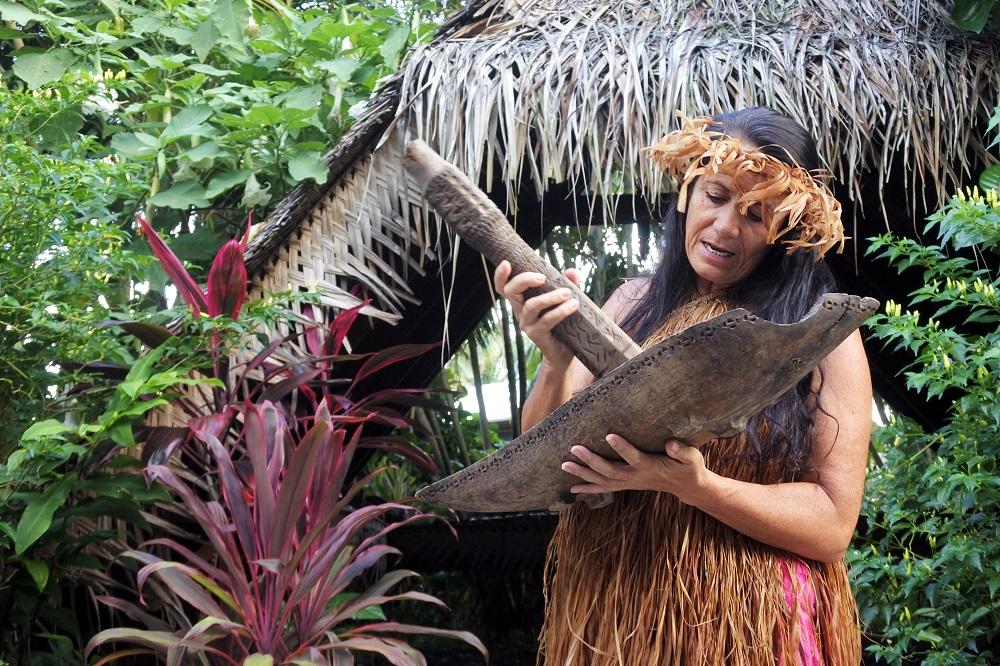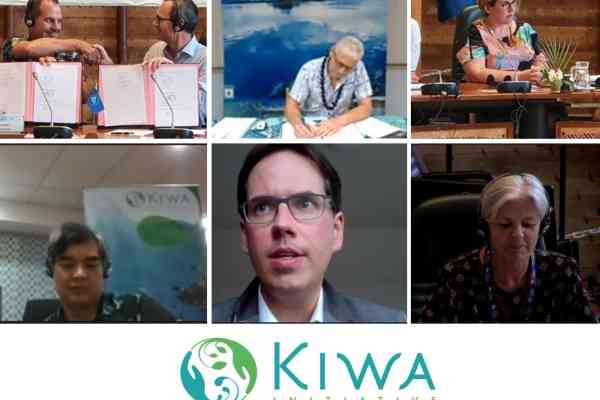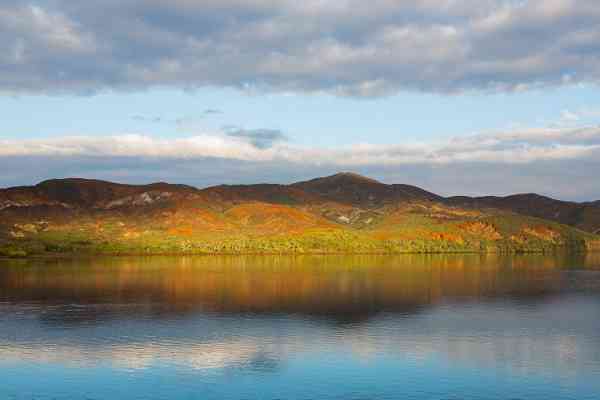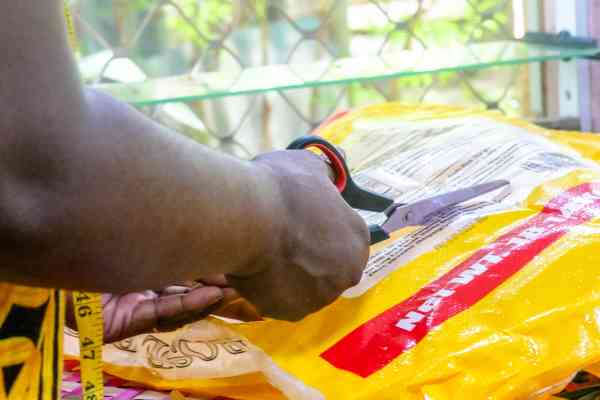Nature-based solutions (NbS) are a sustainable approach to protect, manage, and restore ecosystems to address societal challenges and benefit people and nature. The integration of indigenous and traditional knowledge is essential in NbS as it complements scientific knowledge and provides empirical insights into the natural environment. In the Pacific region, traditional knowledge is transmitted orally across generations. By combining traditional and scientific knowledge, NbS strategies can be developed holistically and sustainably.
We met Dolores deBrum Kattil, Executive Director of the Marshall Islands Conservation Society, Christopher LaFranchi, Founder and CEO, OneReef, Being Yeeting, Fisheries Advisor for the Nauru Fisheries and Marine Resources Authority and Ludovic Branlant, Kiwa Initiative regional project development coordinator for the Pacific Community to understand better how to value the use of traditional knowledge in the face of the climate emergency.
Q: Why have Nature-based Solutions become so important in recent years?
A - Dolores deBrum Kattil:
In the Marshall Islands we see and understand the concept of NbS, I must mention that NbS have traditionally been an integral part of life in the islands, as we have always been trying to find ways to work with nature and what we have available to survive and meet life’s challenges.
Yet over the years, because of westernisation through education and socio-economic growth, our people now sometimes opt for hard and fast solutions for their everyday need.. With climate change and sea level rise, the global community recognises that these solutions can offer improved protection and support needed for us to continue living on our islands. Although these ways of working with nature may seem primitive or fundamental, they are based on generations of knowledge, and many are still very relevant and have an essential role in connecting our people with the places.
NbS can serve as touchstones to the rhythms and patterns of nature and ultimately for managing the resources that we have and still depend on. This is why they gained importance over the last few years.
Q: NbS can help to manage natural resources in a sustainable way, how do we integrate scientific and traditional knowledge into NbS projects?
A - Christopher LaFranchi:
Scientific and traditional approaches within an NbS project should work together . New solutions are needed to help address the coral reef crisis, much of which climate change and other anthropogenic activities aggravate. For example, coral reefs support twenty-five per cent of all marine life, feed 500 million people, contribute over $30 billion in tourism revenues globally, and buffer shores from the ravages of storms and king tides. Yet, unfortunately, 50% of coral reefs have died in the last 30 years.
What is needed the most to tackle this issue is dedicated local managers who can prevent overfishing as well as monitor reef health.
Community-led partnerships that assist island stakeholders in implementing ecosystem management models of stewardship that integrate scientific and traditional approaches are also excellentways to address the growing climate threat to coral reef ecosystems and the coastal fishery resources they support.
Q: How might traditional knowledge and Nature-based Solutions be combined?
A - Being Yeeting:
To me, traditional – or indigenous - knowledge saved us from years of costly scientific investigation to try and understand some of the critical life history aspects of some of our important fish species. This has allowed us to take urgent management measures to save our fish resources before it’s too late.
I remember the old fisherman sat in front of me and looked around at the trees next to his hut on the beach blooming with striking, yellow-coloured flowers with a deep sigh and a sparkle in his eyes, then said, “It’s indeed time. It is time to go fishing”.
Such invaluable observations amongst the many that his forefathers passed down, have helped him feed his family from their vast surrounding ocean since learning how to fish from his father. All this wealth of local knowledge collected over generations of observing nature has provided a means to survive on a small island where fish and marine invertebrates are the main sources of sustenance. In addition, this local knowledge has given him a good understanding of his marine resources.
Today with science and an improved understanding of nature and ecological processes, we know that the big schools of fish forming in the area on the northern tip of the island is a spawning aggregation, a time when the fish lay their eggs. We also know the consequences of uncontrolled fishing of these spawning aggregations. Local knowledge can provide us with the time and location of the spawning aggregation, which we can use to set up some effective control measures such asbanning fishing during the spawning aggregations or declaring the spawning aggregation site as a marine conservation area.
Q: In the Pacific, what are the challenges of Nature-based Solutions?
A - Ludovic Branlant:
Access to climate finance in Pacific Islands Countries and Territories is the main challenge the region is facing due to a combination of factors such as limited institutional capacities, dispersed geographies, and inadequate availability of data. This is compounded by the slow pace and complex nature of processes required to access multilateral climate funds and mechanisms.
Moreover, bridging local and national priorities is essential to finding sustainable solutions that benefit all stakeholders. Pacific nations are only starting to talk about NbS as a concept itself although they have been experiencing it as part of ecosystem-based approach for some time. Linking local needs to regional strategies is a challenge that cannot be addressed without both communities and governments.
As an example, the two funding windows offered by the Kiwa Initiative provide different scales of financial support for NbS projects for climate change adaptation. The linkages between these two funding windows lie in their complementary nature. While the very small and medium grants focus on local and national levels, the large grants for regional projects provide a platform for collaboration and coordination at a broader regional scale. Together, these funding windows contribute to a comprehensive approach to climate change adaptation through NbS, addressing both local and regional challenges while promoting knowledge-sharing and capacity-building across different scales.



